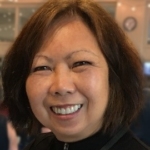Predicting Future Tech Trends for an Immersive Intelligent Digital World
Livestream: Wednesday, July 15th at 7am PT/10am ET/4pm CET/11pm JT
Predicting and immersing one with the future is always a challenge and a desire. The IEEE rises to that challenge based upon the work it does on multiple new and emerging technologies through serving as a catalyst for developing new innovations, products and services.
IEEE Future Directions serves as an incubator for these new initiatives. One of its focus areas, Digital Reality serves to explore and enable the coming Digital Transformation through collaboration among technologists, engineers, regulators, practitioners, and ethicists around the world. The Digital Transformation is fueled by advances in technology, such as Artificial Intelligence (AI), Machine Learning (ML), Quantum, and applications using the copious amounts of continuously generated data. By leveraging these technologies and others developed such as Augmented Reality (AR), Virtual Reality (VR), and Digital Twins, the line between the physical world and the digital world will be increasingly less distinct. Applications are already quickly emerging across the broad fields of education, manufacturing, medicine, entertainment, automotive, enabling the sharing of services, and more.
Emphasis will be upon presenting practical applications and its implementations of interest to attendees. Subject matter expert speakers will comment on current and past implementations.
Format: Participate in a livestream discussion with a panel of industry experts from several distinct fields who will provide their perspectives, observations, and predictions of the future.
The session will be broadcast via a Virtual Reality live view of the panelists without the need for any special equipment.
Try something new after the livestream. Opportunity will be given to attendees to enter into one of the VR rooms for a first hand chat with the panelists. Additional registration on a first come basis will be set up.
Session Outline (Total Time is 1.5 hours)
- Tom Coughlin, Coughlin Associates
- Nicholas Napp, Xmark Labs
- Jeewika Ranaweera, Oracle
- Ricardo Chavarriaga, Zurich University of Applied Sciences
- Moderated by Kathy Grise, IEEE
 Tom Coughlin, President, Coughlin Associates is a digital storage analyst and business and technology consultant. He has over 37 years in the data storage industry with engineering and management positions at several companies. Coughlin Associates consults, publishes books and market and technology reports (including The Media and Entertainment Storage Report), and puts on digital storage-oriented events. He is a regular storage and memory contributor for forbes.com and M&E organization websites. He is an IEEE Fellow, President of IEEE-USA and is active with SNIA and SMPTE.
Tom Coughlin, President, Coughlin Associates is a digital storage analyst and business and technology consultant. He has over 37 years in the data storage industry with engineering and management positions at several companies. Coughlin Associates consults, publishes books and market and technology reports (including The Media and Entertainment Storage Report), and puts on digital storage-oriented events. He is a regular storage and memory contributor for forbes.com and M&E organization websites. He is an IEEE Fellow, President of IEEE-USA and is active with SNIA and SMPTE.
 Nicholas Napp, Founder, CEO Xmark Labs. As a co-founder of Xmark Labs, Nicholas is focused on the role of Virtual & Augmented Reality and Blockchain technologies in enterprise digital transformation. He enjoys working at the intersection of strategy, technology and corporate narrative to accelerate business growth.Nicholas has been working with VR and AR systems since the 1990s when his team at Rainbow Studios pioneered the use of VR in 3D animation production. He has launched over 40 products across a wide range of consumer and enterprise markets.Nicholas is also Chairman of the Board at FabNewport, a non-profit provider of maker-centered learning programs and services for middle school and older students.
Nicholas Napp, Founder, CEO Xmark Labs. As a co-founder of Xmark Labs, Nicholas is focused on the role of Virtual & Augmented Reality and Blockchain technologies in enterprise digital transformation. He enjoys working at the intersection of strategy, technology and corporate narrative to accelerate business growth.Nicholas has been working with VR and AR systems since the 1990s when his team at Rainbow Studios pioneered the use of VR in 3D animation production. He has launched over 40 products across a wide range of consumer and enterprise markets.Nicholas is also Chairman of the Board at FabNewport, a non-profit provider of maker-centered learning programs and services for middle school and older students.

Jeewika Ranaweera is a principal hardware engineer working on high-speed microprocessors at Oracle. She received her Bachelor’s in CSE from ISPJAE in Havana, Cuba and her Master’s and PhD degrees in ECE from the University Of Toronto, Canada. She is an IEEE Senior Member and a steering committee member for IEEE Future Directions and Digital Reality Initiatives.
Jeewika authored an eBook about her engineering journey for IEEE Women in Engineering to inspire others to follow STEM careers and illustrated the 1st children’s book published by IEEE. Recently she delivered a Keynote on “Successful Leadership Development in STEAM Careers,” at the IEEE LAEDC 2020, WIE/YP Networking session in Costa Rica. She is passionate about delivering talks on Quantum Computing, and the need to have a diverse environment to eliminate “Bias in AI” that discriminates minority. She also shared her unique insight via a podcast on areas where immersive technologies benefit humanity. She has been a speaker at the IEEE LAEDC, Drive World Conference, ChipChat, IEEE VTS, IEEE CCNC, AWE, IEEE TTM, Grace Hopper Conference, IEEE WIC Summit, and FB Developer Circle. She has also been a Track chair for the IEEE WIE ILC.
She volunteers as a female technologist through the Oracle Education Foundation. As a Program Evaluator for ABET, she helps guide the content, quality and delivery of ECE degree programs around the world.
She has authored and co-authored many papers published in technical journals, or presented at international conferences. Jeewika holds five US Patents.

Ricardo Chavarriaga is passionate of responsible development and social implications of technology, and highly interested in the translation of emerging technologies onto applications at service of society.
With more than 12 years of experience in human-machine interaction, brain-machine interfaces, and artificial intelligence, his work is focused on the conception of technologies that allow symbiotic interaction between human and intelligent machines. This is based on better understanding of the brain and cognitive processes, humane development of artificial intelligent systems, and user-centred technology design.
Ricardo Chavarriaga is affiliated with the Zürich University of Applied Sciences (ZHAW) as the head of the Swiss office of the CLAIRE initiative on Human-Centred Artificial Intelligence; as well as executive-in-residence at the Geneva Center for Security Policy (GCSP). In addition, Dr. Chavarriaga is the chair of the IEEE Standards Association working group on Neurotechnologies for Brain-Machine Interfacing and editor of the IEEE Brain eNewsletter.

He is interested in the use of VR/AR/MR/XR technologies to support and foster the ongoing digital transformation of the industry and the society in general, to disrupt the way we humans interact with real and virtual environments, with our surroundings, and with each other.
Currently leading research in innovation and application of Immersive Technologies and cutting-edge Robotics to support the digital transformation of a plethora of domains. His current research focuses on emerging a new type of Cyber-Physical-Social Eco-Society of systems that seamlessly blend the real with virtual worlds, using XR, Robots and Social Networking technologies. He is also leading research focusing on the use of Immersive Technologies and Virtual Environments to support and enhance education. He is the Principal Investigator and Lead Developer of the VirtualSHU, bringing immersive technologies into the classroom to support teaching and learning.
He is a member of the IEEE Digital Reality steering committee, and a member of the Immersive Learning Research Network. He is also a Fellow of the UK Higher Education Academy, member of IEEE and ACM SIGCSE.

Kathy Grise, Senior Program Director – IEEE Future Directions, supports new technology initiatives, is the IEEE staff program director for the Digital Reality Initiative, the IEEE Technology Navigator AI, Future Directions and Industry Advisory Board Committees, and manages the digital presence team for Future Directions. Previous initiatives included big data and cloud computing. Ms. Grise serves as the Technical Program Chair of the IEEE COMPSAC 2020 Symposium – Data Sciences, Analytics, & Technologies (DSAT).Prior to joining the IEEE staff, Ms. Grise held numerous positions at IBM, and most recently was a Senior Engineering Manager for Process Design Kit Enablement in the IBM Semiconductor Research and Development Center. Ms. Grise led the overall IT infrastructure implementation, and software development in support of semiconductor device modeling verification, packaging, and delivery; device measurement and characterization data collection and management, and automation for device modeling engineers. Ms. Grise is a graduate of Washington and Jefferson College, and an IEEE Senior member.
